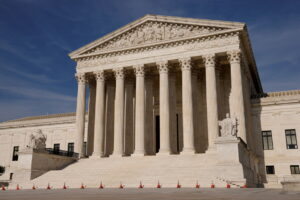Supreme Court Ends CDC’s Eviction Moratorium: What Landlords Need to Know
“A Glimpse of the Supreme Court’s Historic Ruling”
In a significant legal development, the Supreme Court delivered a decisive ruling on August 26, 2021, effectively ending the extended CDC (Centers for Disease Control and Prevention) eviction moratorium. This ruling carries crucial implications for both landlords and tenants across the United States. Here’s a closer look at what this decision means and its broader impact.
**1. The Unconstitutionality of the Extended Eviction Moratorium**
The Supreme Court’s ruling declared the extended eviction moratorium as unconstitutional. This decision underscores the principle that certain government actions, even in the face of a public health crisis like the COVID-19 pandemic, must align with the Constitution’s framework. The Court’s stance highlighted the need for congressional authorization for any federally imposed eviction moratorium to continue beyond its initial scope.
**2. CDC’s Authority Under Scrutiny**
The ruling also called into question the CDC’s authority to extend the eviction moratorium without explicit congressional approval. The CDC had relied on a decades-old statute that grants it certain powers related to public health measures, such as pest control. However, the Supreme Court’s decision raised doubts about whether this statute provided the CDC with the authority to implement a nationwide eviction moratorium of such sweeping nature.
**Implications for Landlords and Property Managers**
The Supreme Court’s decision brings welcome news for landlords and property managers. It means that, in cases of non-payment of rent, they now have legal recourse to initiate eviction proceedings against non-compliant tenants. This ruling restores landlords’ rights to manage their properties efficiently and address non-payment issues promptly.
**Guidance for Landlords: Rental Assistance Options**
While the Supreme Court’s decision empowers landlords to enforce eviction for non-payment, it’s essential to consider alternatives. Landlords can help struggling tenants by providing information on available rental assistance programs. Many tenants may have pending rental assistance applications, which can serve as a defense in rent court. Encouraging tenants to explore these resources can lead to mutually beneficial solutions.
**Understanding Evictions in Florida**
In Florida, evictions continued to occur during the pandemic, albeit with certain procedures and timelines in place. Tenants in Florida typically receive a three-day notice to pay rent or vacate the property. If the tenant fails to take action within this period, the landlord can proceed with the eviction process. It’s important to note that the specifics of eviction procedures may vary by state and locality.
**Need for Professional Eviction Services**
Navigating the eviction process can be complex and challenging. For landlords facing difficulties with uncooperative tenants, seeking professional eviction services is often the most efficient solution. At Headley Legal Support Services, we specialize in providing fast and reliable eviction services in Florida. Visit our website at headleylegalsupport.com for more information or reach out to us via email at [email protected] or by phone at 954-903-4991.
In conclusion, the Supreme Court’s ruling to end the CDC’s eviction moratorium marks a pivotal moment in the ongoing debate about the balance between public health measures and property rights. Landlords now have the legal means to address non-payment issues, but collaboration and exploration of rental assistance options remain key to resolving rental disputes amicably.
(Note: This article provides information based on the Supreme Court’s ruling as of August 26, 2021. Legal interpretations and regulations may have evolved since that time, and it is advisable to consult legal experts and up-to-date sources for the latest information on eviction proceedings and regulations in your area.)
Updated: 09/24/2023

